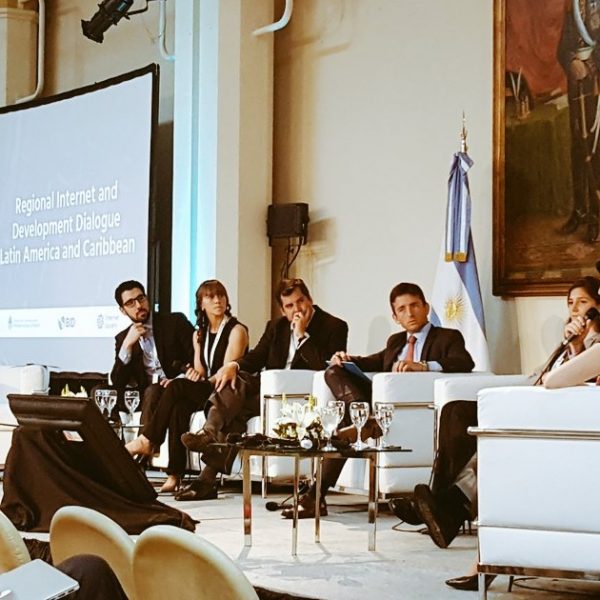Background
Objective
The purpose of this conference is to convene a multi-stakeholder regional dialogue on policy issues around ‘Internet for Development’ matters and address some of the opportunities and challenges in the Asia-Pacific region. Special attention will be given to the transformational potential of ICT and Internet for SDGs, as well as mainstreaming gender within topical discussions. The conference will offer open high-level discussions addressing the following dimensions:
- Connecting the Next Billion
- ICTs and Sustainable Development
- Regional Opportunities and Challenges
Conference Cross-cutting Themes
Keeping in mind the Sustainable Development Goals (SDGs), and considering the opportunities the Internet enables, the conference will explore qualitative and quantitative impact, best practices and lessons learned, as well as findings from the latest studies and analysis on the following topics:
Rural Connectivity
A significant proportion of the population in Asia-Pacific live in rural and remote areas—the same areas that, in addition to being broadly marginalised, are also more likely to be victims of market failure, with commercial viability often an issue for service providers. To this end, the conference will discuss various alternatives to Internet access provision to such communities in order to encourage diversity and resilience. It will also look into policy options for infrastructure sharing, spectrum allocation, universal service funds and subsidy models, community owned networks, as well as projects by commercial and non-commercial actors to roll out networks to underserved and unserved areas in the region.
Financial Inclusion
Financial services are crucial to encouraging entrepreneurship and economic participation, especially for the informal sector–yet an estimated 1.2 billion people in Asia-Pacific do not have access to a bank account. The Internet, along with mobile technologies, are helping to fill in these gaps through mechanisms like mobile payments, micro-lending and micro-insurance, which allow the unbanked to save, transfer, transact, and borrow money at reasonable rates, and governments to deliver social benefits to the poor at much lower costs. Tailoring products to the particular needs of the unbanked is important, as well the need for interoperability among different platforms and service providers, and harmonisation of laws, standards and guidelines among jurisdictions in the region.
Disaster management and mitigation
The increasing frequency and intensity of disasters around Asia-Pacific call for technologies to monitor environmental changes, power early warning systems, support crucial communication, and aid local and international coordination to help communities prepare and respond to natural calamities. With participants from the region’s disaster-prone countries, the conference will look into how connected devices and platforms like solar-powered sensors, transponders, 3D mapping and delay-tolerant networks, are being applied to emergency situations to help minimise the damage and casualties from natural calamities, and will explore some of the policy considerations around these.
Enabling e-services
Increased Internet connectivity is expected to pave the way for the development and more widespread – and timely – distribution of tools, services and applications to support meaningful Internet access and empowerment for marginalised sectors of community, including women, indigenous communities, and those with special needs, such as the elderly and persons with disabilities. But findings from recent research also show that the link between Internet access and use is not straightforward. While many governments in the region have launched frameworks for e-health, e-government and e-education, implementation rates vary wildly in part due to the lack of local capacity but as well due to issues around access. An enabling environment that allows the public and private sectors, as well as not-for-profit organisations, to innovate, create and facilitate is critical, and the open Internet plays a key role in this. Improving access and accessibility, building digital skills and literacy, enhancing trust online, and taking into account the user’s capabilities and needs are some of the factors that will increase the value and utility of the Internet for existing and potential users.
Frugal innovation and Entrepreneurship
Extending Internet connectivity to the last billions inevitably involves lowcost, and often low-power and open solutions that can be easily adopted or reproduced by low-income, rural and less skilled communities. The conference will seek to highlight some of the innovative equipment, platforms, software and systems that encourage future Internet users to not only become consumers, but also producers and creators of the Internet and the active and passive infrastructure, devices and services that go with it.
APAC RIDD Papers
- Asia-Pacific Regional Internet & Development Dialogue Concept Paper
- Asia-Pacific Regional Internet & Development Dialogue Issue Papers
- Asia-Pacific Regional Internet & Development Dialogue Outcome Document
- Asia-Pacific Regional Internet & Development Dialogue Report
Here you will find a list of links and resources related to the APAC RIDD:
- Asia-Pacific Information Superhighway Page
- UN ESCAP Report “State of ICT in Asia and the Pacific 2016
- Internet Society Report “Unleashing Potential of the Internet for ASEAN Economies”
- Internet Society and UN ESCAP Report “Unleashing the Potential of the Internet in Central Asia, South Asia, the Caucasus and Beyond”





